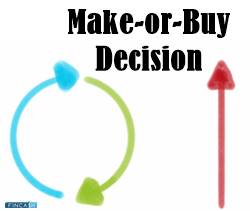
Make-Whole Call Provision (MCP)
What is Make-Whole Call Provision?
In the context of a bond, the Make-whole Call provision definition is - the policy that enables the borrower or issuer to make the early payment. In other words, it allows them to clear the whole debt by paying the amount in the lump-sum to the bondholder or the investor. The amount the borrower is supposed to pay to the lender must be equal to the NPV (net present value) of the remaining coupon payments. Bond-holders must have this bond provision. It provides them the protection from the losses they might incur if the company decides to pay the debt (remaining coupon payments) in advance.

Since the 1990s, the make-whole call provisions are added to the bond indentures. The bondholder rarely needs to use this provision. That’s because not all companies exercise these calls. If the investor decides to use it, then the company will have to compensate them for the principal value and the remaining coupon payments, which are to be paid in the coming years. The provision makes it mandatory for the company to pay the remaining debt in lump-sum to the holder The decision can turn out to be costly to the company since they will have to pay the amount equal to the NPV of the remaining coupon payments. Both parties are supposed to calculate the accurate net present value. You can do it using the current Market discount rate.
How can the MCP Benefit the Investor?
Let’s understand this concept with an example. Suppose you purchase the bond from a company that is expected to mature in the next 20 years. The company pays you the coupon payments of a thousand dollars every six months. As the interest rate plunges suddenly, the company makes the lump-sum payment for the bond (or pay off the remaining debts in full).
Talk to our investment specialist
That means you will get the entire investment back a few years earlier. Let’s say the company decides to make the complete payment for the debts after 15 years of regular coupon payments. Now that you get the amount in full, the company will not pay the coupon payments for the remaining five years. If the bond is attached to this provision, then the company will be required to pay the principal amount and current value of the investment that you won’t be able to receive because of the advanced payment.
The main purpose of this provision is to ensure that the bondholder or investor will reap the full benefits of the investment even if the borrower decides to make the lump-sum payment before the bond reaches its maturity. This provision is extremely important for investors who rely on the semi-annual coupon payments. Besides that, it also prevents the companies from making an early payment since the total cost could go extremely high if they decide to pay the amount sooner than the actual date.
All efforts have been made to ensure the information provided here is accurate. However, no guarantees are made regarding correctness of data. Please verify with scheme information document before making any investment.












